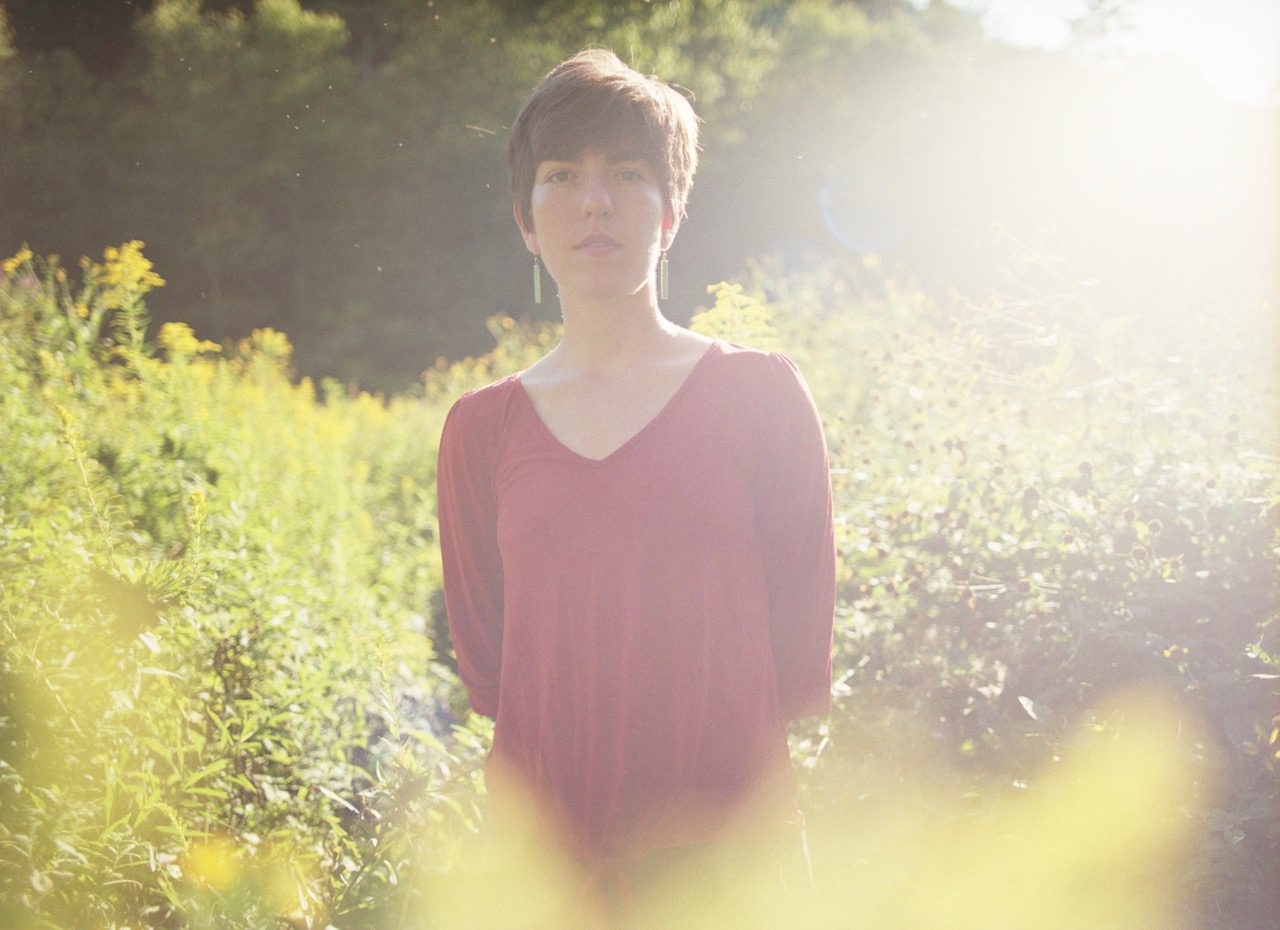THE READING ROOM: Maya de Vitry Gives a Tour of Her Nightstand Book Stack

Photo by Laura Partain
Maya de Vitry certainly has a way with language. You can hear the ways she ponders every lyric, searching for just the right image or metaphor and shaping stories that help us understand our world in deeper ways. Her songs open windows that give us insights into the ambiguities of our lives and the ways we live with them. De Vitry’s reflective writing grows out of her deep reading and love of books. I chatted by phone recently with de Vitry about books, reading, and songwriting.
What books are on your nightstand now?
Pema Chödrön’s Taking the Leap. I have a friend who is a touring sound person, and we always swap books, and this is how I got this one. I have been really into mindfulness and am trying to learn about meditation. bell hooks’ Wounds of Passion. I found it used at Powell’s in Portland. It’s her memoir about the foundations of her writing life and her early journey as a writer. The Sun: I love that magazine; I am reading the December 2019 issue right now. The last book I read cover-to-cover was Sheila Heti’s Motherhood; it’s a novel, but it reads like a memoir. The narrator sees life backward and forward; the way she sees her own life gives a special meaning to the lives around her.
Fiction or nonfiction?
I tend to go to a lot of nonfiction. I split my reading between collections of essays and memoirs and biographies. I love Wendell Berry’s essay collections. I’m fascinated by the way he writes about his sense of place, which is also very important to me.
What kind of reader were you as a child?
My parents read aloud to us a lot, and we had a ton of books in our house. I read a lot as a kid. I read all the Pony Pals books, and I loved the Little House on the Prairie books. We had this set of illustrated encyclopedias, and I’d pull out a certain volume and turn to a subject and be fascinated by what I was reading. I remember loving Where the Red Fern Grows. When I was in high school, though, it was hard to be able to read for fun.
How do you arrange your books?
Right now they are arranged by color, but that was a compromise with my roommate (laughs). They’re soon to be arranged alphabetically, though.
What books would people be surprised to see on your shelves?
Charles Bukowski’s novel Post Office. It’s super coarse and objectifying of women. But I want to experience that kind of writing, too, and don’t want to limit myself to reading books with only points of view I agree with.
Print or electronic?
Definitely print! I never read electronic unless it’s an interview in No Depression (laughs).
Do you have a favorite bookstore?
I do go to a lot of used bookstores when I’m on the road. I really like Malaprop’s in Asheville. We also found this great store in Olympia, Washington: Orca Books.
How does your reading influence or inspire your songwriting?
I sat in recently on a group of writers who were discussing their process of writing, and it was so cool to hear the differences in their processes and the processes of songwriting. I wonder if there is a way songwriters could do something like this? I think writers tend to write about the things we’re interested in. I’ve been inspired by reading Sue Monk Kidd’s The Dance of the Dissident Daughter. The book describes her journey to an understanding of the feminine as the divine. It was a transformational book to read, and it had a direct impact on my songwriting for my new album. Some of the narratives on the new record are about turning things upside down.
What’s the best book you’ve ever been given as a present?
A nice fresh journal.
What’s the one book you won’t leave home without?
The Sun magazine; it’s thin and portable, and perfect if I have to sit at the DMV.
What’s the one book that changed your life?
Audre Lorde’s Sister Outsider. That book really opened my eyes to a lot of the limits of my own education and my own understanding of race and gender. I go back to it a lot. A Year with Rilke: he’s really influenced me. I really love Rilke’s writing: it’s very spiritual and very earthy at the same time.
You’re having a dinner party, and you can invite five authors, living or dead; whom do you invite?
Audre Lorde, Sue Monk Kidd (I’d love to meet her), Leo Tolstoy, Rilke, Maya Angelou.




